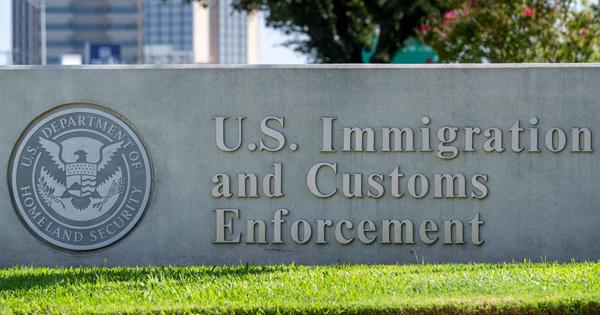
This article was originally published in Rest of World, which covers technology’s impact outside the West.
It’s been a turbulent week for the global tech industry.
On September 19, US President Donald Trump announced a $100,000 fee for new applicants of H-1B visas, which allow highly skilled workers to live and work in the US for up to six years. Trump framed the order as a crackdown on “abuse” of the visa programme.
The decision triggered a frenzy across the tech industry, which extensively uses the popular visa category. Some of the US’s largest companies – Amazon, Google, and Microsoft – have been among its biggest beneficiaries in recent years. Between 2020 and 2024, Amazon consistently clocked the highest number of approvals and received over 56,000 H-1B visas.
While companies have not yet explained how they plan to navigate this new change, some experts believe it could threaten the global talent pipeline. Others said it would have less impact because employers would be willing to pay the high fee, especially at a time when the competition for top AI researchers and engineering talent is fiercer than ever.
Rest of World spoke with tech experts and entrepreneurs to understand how American companies may be impacted by this decision. Quotes have been edited for clarity and length.
Better chance at the H-1B lottery
Poorvi Chothani, founder of Mumbai-based global immigration law firm LawQuest
“One of the things the president indicated was that he had spoken to large tech companies before the September 19 proclamation. If the tech companies supported this huge additional fee, they probably are in a position to absorb it.
If the number of registrations for the H-1B lottery reduces because of this fee, then Amazon, Google, Microsoft, and other large consumers of this visa will get a better chance at the lottery.
When the president announced the proclamation, everybody was in a panic because there was talk of this being an annual fee. That would have exponentially raised the cost of hiring H-1B workers. Now, they’ve toned it down to a one-time fee for new filings. Of course, even this would be a great pressure on profitability because they won’t be able to pass on the entire additional cost to the end customer.”
Globalisation of Silicon Valley
Iyinoluwa Aboyeji, co-founder of African unicorns Andela and Flutterwave, and managing partner at Accelerate Africa, a Lagos-based startup accelerator firm
“I believe this move will further accelerate the globalisation of Silicon Valley, especially with the rise of decentralised finance and the diffusion of AI.
Silicon Valley giants have been firing tens of thousands of people over the last two years with the rise of AI. If you are one of those $100-million AI researchers Mark Zuckerberg is looking for, perhaps he will pay, but not for much else in my opinion. The talent themselves must be considering whether it’s worth hanging their career on a thin thread of US policy whims.
Africa will benefit from having its talent return home to double down on the momentum our technology ecosystem has built, particularly over the last decade.”
H-1B and Indian workers
Nasscom, India’s apex IT industry trade body
“With the fee being applicable from 2026 onward, it gives companies time to further step up skilling programmes in the US and enhance local hiring. The industry is spending more than a billion dollars on local upskilling and hiring in the US and the number of local hires has increased tremendously.
As per available data, H-1Bs issued to the leading Indian and India-centric companies have decreased from 14,792 in 2015 to 10,162 in 2024. H-1B workers for the top 10 Indian and India-centric companies are less than 1% of their entire employee base. Given this trajectory, we anticipate only a marginal impact for the sector.
H- 1B is high skilled worker mobility and a non-immigrant visa that bridges critical skills gaps in the US. Salaries are at par with local hires.
Nasscom has consistently advocated for predictable and stable skilled talent mobility frameworks, which are critical for sustaining national competitiveness and have long fuelled US innovation and economic growth.”
Exceptional talent at Meta, Google, and Nvidia
Wole Ayodele, founder and CEO of Nigerian cross-border payment platform Fincra
“This policy is a net positive for the world, especially the Global South like Asia and Africa, where most of the H-1B visa holders come from, which Meta, Google, and even Nvidia acquire and retain.
If a talent is really great, Big Tech won’t have any issues paying $100,000 for their visa. It’s almost close to or even more than what some people’s signing bonuses are. So it’s nothing out of the ordinary.
What is more important here is that the US tech industry will be better for it. Opportunities will shrink, yes. But that’s for talent that isn’t that great. If America can reserve the H-1B visa only for the uber-qualified, it will remain very competitive, especially in AI and other advanced technologies, where it is presently in a race with China.
For the Global South, this means not all our exceptional talent will leave our shores. This already created a blocker for every talent with the ambition to leave for the state. This means we will have more quality hands helping to build the future of their country and continent.”
(With inputs from Ananya Bhattacharya)
Damilare Dosunmu is a reporter for Rest of World covering Africa’s tech scene. He is based in Lagos, Nigeria.
This article was originally published in Rest of World, which covers technology’s impact outside the West.
📰 Crime Today News is proudly sponsored by DRYFRUIT & CO – A Brand by eFabby Global LLC
Design & Developed by Yes Mom Hosting






